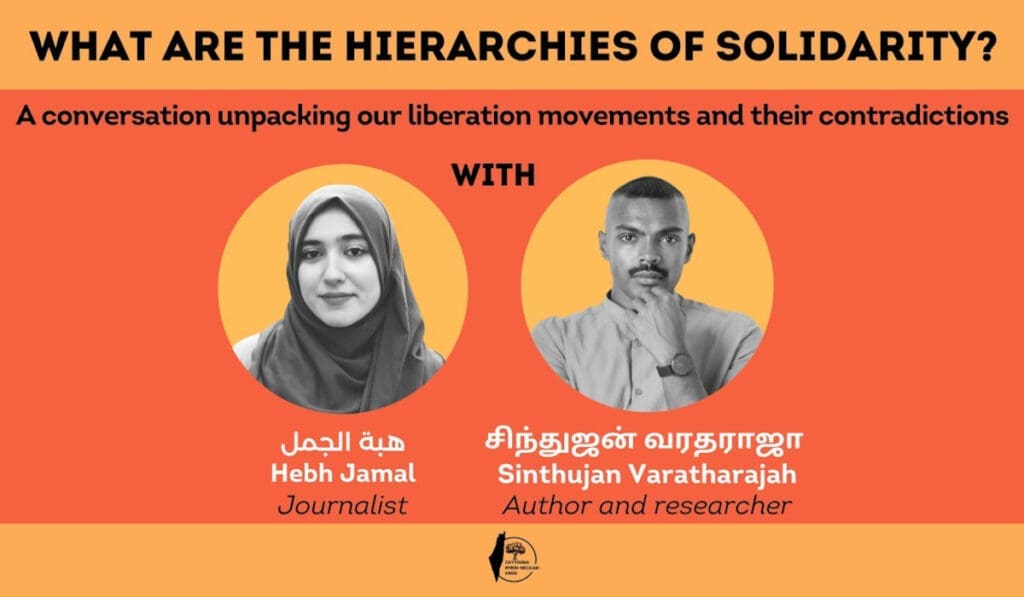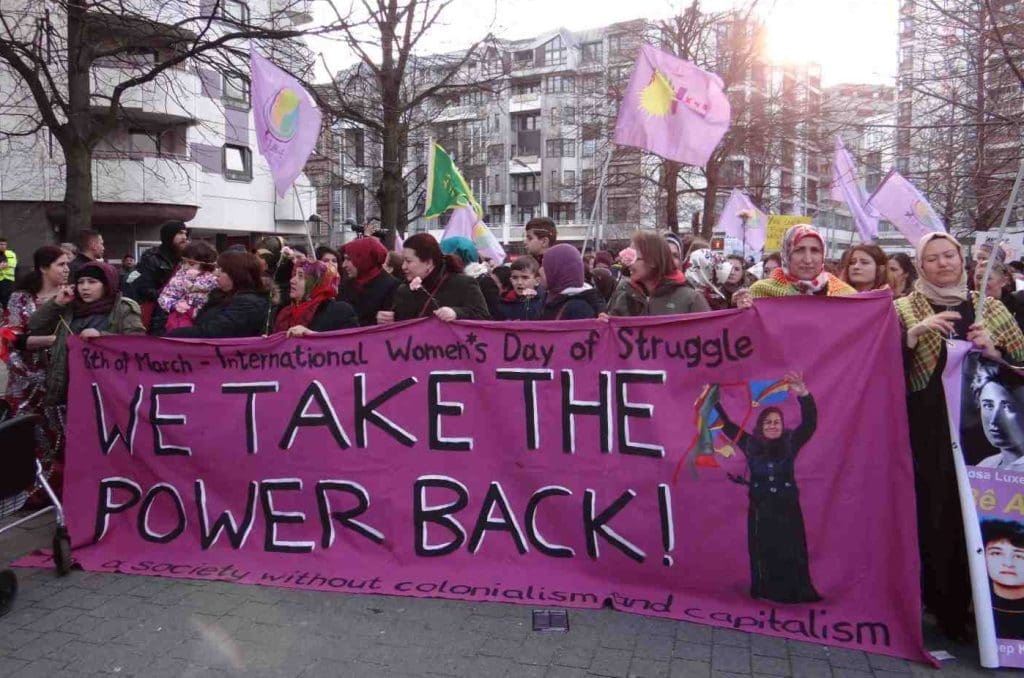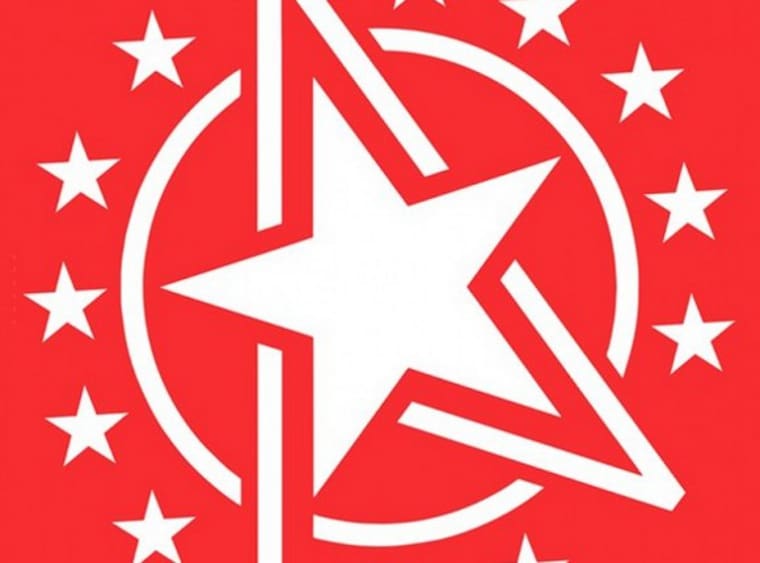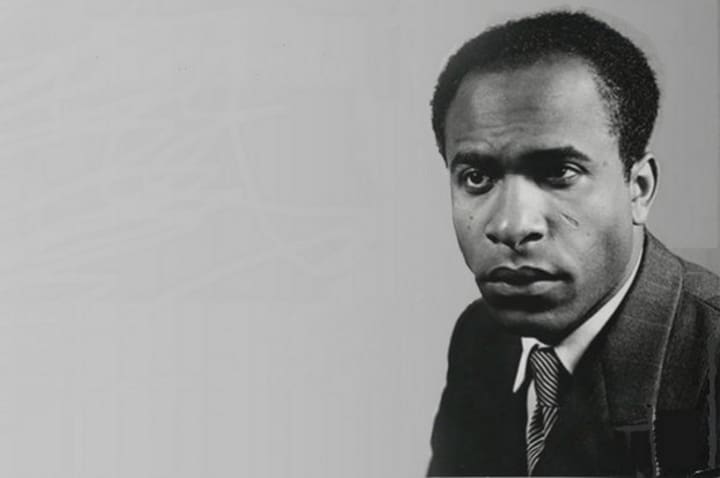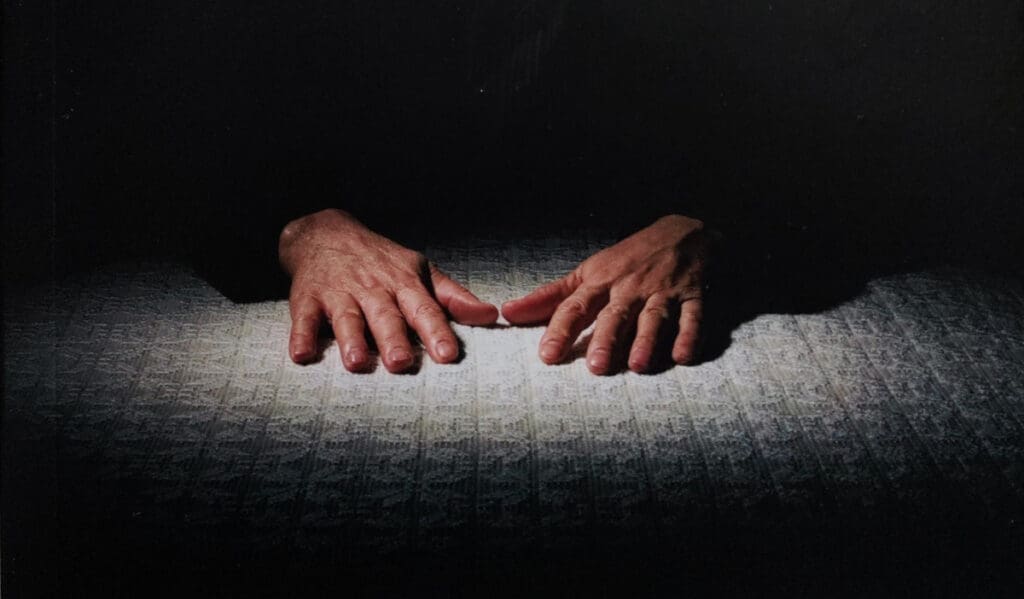Hierarchies of Solidarity
a zine by @Liz_artistry based on a conversation between Sinthujan Varatharajah & Hebh Jamal
27 March 2025 (read | print)
“Having seen the ways we’ve been rendered invisible, pushed into a side conversation or a drawer of forgotten people, it always felt cynical, frustrating, and aggravating—personally, but also collectively—for a lot of Eelam Tamil people.”
—Sinthujan Varatharajah
Reductive solidarities
Self referential: viewing other liberation struggles solely in relation to own experiences
Idealist: abstracting specific struggle into a metaphor for the world
Hierarchical: centering certain oppressions while dismissing others
Climb the ladder to read more about each:
Self-referential solidarity
Viewing other liberation struggles through the lens of one’s own experiences has the potential to make connections between systemic violences.
If it’s not taken further, however, it tends to reinforce the self and discourage from seeing differences and specificities between struggles.
This lack of deeper analysis can lead to false equivalencies, such as equating anti-Zionism and antisemitism.
Non-Palestinian Muslims who support Palestine may no longer see Palestinians but themselves. Palestinians, similarly to Rohingya, become an abstraction for Muslim subjectivity.
“It infantilizes the Palestinian people where all of these different groups, who think they’re seeing their humanity, in reality are projecting their own belief systems, ideologies, and acting what they see fit in order to fight for the Palestinian people.”
—Hebh Jamal
Idealist solidarity
Abstracting a particular struggle into a symbol for all anti-colonial struggles removes the specificities of lived experiences and material struggle.
Palestine becomes so abstracted that it’s no longer tied to specific political demands and realities.
Such abstraction often caters to “western” legibility by centering “textbook colonialisms” in which a European majority population is oppressing an Indigenous population.
Palestine becomes centered because of Israel, not because of Palestine.
“We’re free when Palestine is free” becomes a rhetorical tool to shorten conversations and thought process.
Hierarchical solidarity
Making a certain struggle the reference point for every other struggle ends up replicating colonial imperial logic by centering certain oppressions while rendering others a side conversation.
Struggles that are less legible to a “western” lens are deprioritized and considered a “distraction.”
Oppressors identify with Palestine and can be outraged about the bombing of Gaza while cheering on the bombing of Rojava and ignoring Ethiopian empire.
The so-called state of Sri Lanka is able to weaponize anti-imperial rhetoric to delegitimize Tamil struggle.
“Global south” states are considered allies to Palestine while opposing Eelam Tamil struggle.
Horizontal solidarities
How do we decenter ourselves to be in solidarity with struggles not directly related to our lives? How do we do solidarity when it may be in contradiction with our values and experiences?
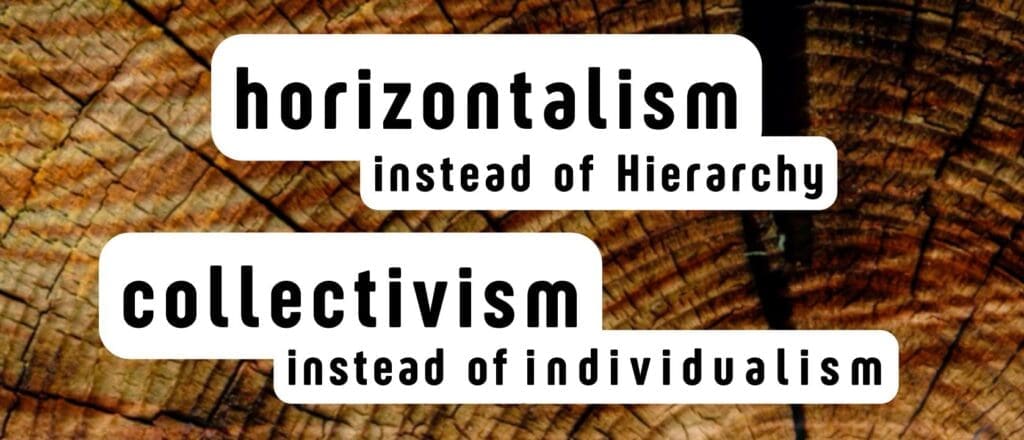
Listen to people whose struggles are rendered illegible on a “global stage,” peoples and struggles who have been peripheralized by “anti-imperialists” in “the west,” people who have been forced to become more cognizant and knowledgeable about other struggles to create bridges and make their histories and realities more digestible to outsiders.
Practice reciprocal ways of being in relationship while differentiating between urgency and exceptionalism…

…without reducing it to a transaction of denying the material realities and power imbalances.
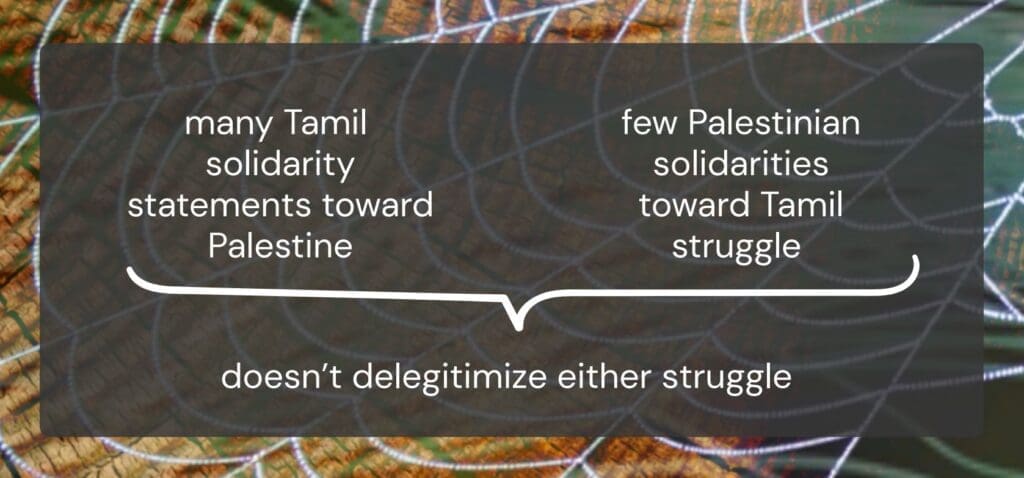
Learn to differentiate between liberatory nationalisms and oppressive nationalisms.
“The fundamental thing for Palestinians is they want to return home. For me, I don’t care if there’s something called a state, or if there’s borders, I just want to be in my home and not be bothered.”
—Hebh Jamal
Acknowledge material realities where the only escape from state violence is to engage with statehood.
Navigate the utility for nationalism and acknowledge when it is no longer useful.
Beware challenging who is in power without challenging power itself.
Avoid false narratives that create artificial closeness to garner undeserved trust.
Beware responses to colonialism that seek solutions within the system and replicate frameworks of violence.
“I’ve always had this contradiction between nationalist struggles because if everyone just wants a state, it doesn’t feel like a revolutionary liberation struggle. It just feels like we’re state building.”
How do we navigate ruptures as people facing different political realities claim public spaces together?
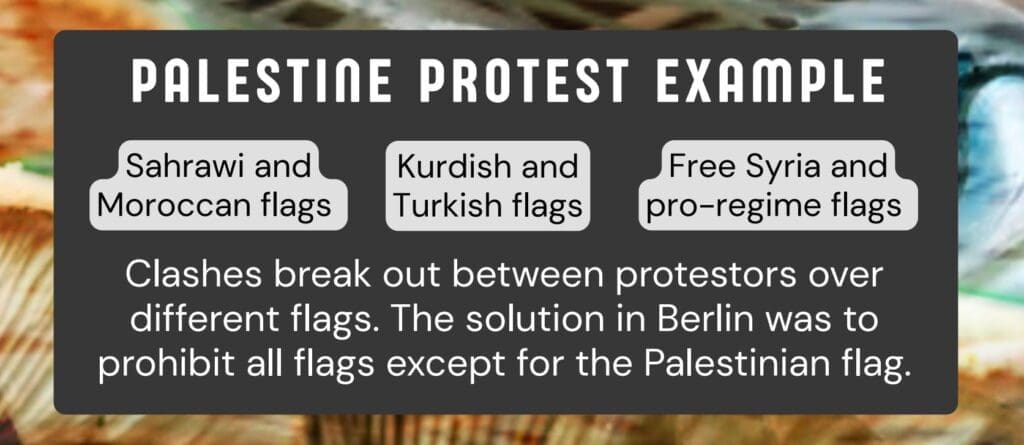
How can we engage with ruptures to better differentiate between oppressor groups who identify with Palestine as an abstraction and oppressed people who identify with Palestine through shared experiences of dehumanization?
Beware treating ruptures as distractions, which creates a hierarchy by prioritizing Palestine over a different confrontation against dehumanization by another group.
How do you decide to let go of a community?
“It’s really difficult when community members who you like and respect don’t want you to toe a specific line. When I take a stand around Kurdistan, for example, this isolates a majority of the people in my [predominantly Turkish] community. It’s really hard and it’s a scary thing to confront, because you don’t want your whole community to be against you all of a sudden.”
“My question is whether that’s a community to hold onto? People who don’t hold principled stances are the type of people who I don’t want to be in community with, and I don’t even want [them] to have a stance or a say in regards to our issues, because I don’t think they’re genuine. It’s very difficult to deny injustice, to unsee and deny someone else’s reality.”
Abandon domesticating conversations behind closed doors due to fear of reactions and accusations.
Abandon the idea that there’s a “right” time to support certain struggles versus others.
Instead, build infrastructures of dissent that allow space for disagreements and open, democratic debate.
Instead, collectivize discourse. Take conversations into the public even when they are uncomfortable.
Discomfort is a productive place to start from.
* * *
Here’s what the zine looks like printed, cut, and folded:
Download PDFs to print, read, and share:

